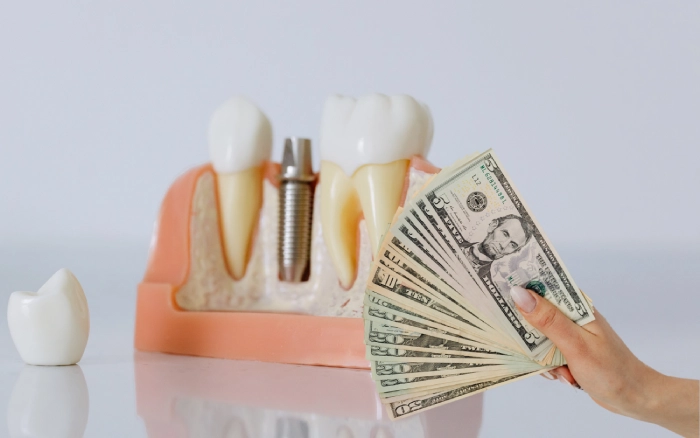Understanding Dental Implant Costs in the UK
Dental implants are a popular choice for those seeking a permanent solution to tooth loss. However, the cost of dental implants in the UK can vary widely depending on several factors. Understanding these factors can help you make informed decisions about your dental care and budget effectively.
Factors Influencing the Cost of Dental Implants
-
Material and Technology: High-quality materials such as titanium for the implant post and ceramic for the crown can affect costs. Advanced technologies like 3D imaging and laser dentistry can also increase the price but may offer better outcomes.
-
Location of the Clinic: Dental practices in major cities like London may charge more due to higher overhead costs compared to clinics in smaller towns.
-
Experience of the Dentist: Highly skilled and experienced dentists may charge more for their expertise, but this can lead to better results and reduced risk of complications.
-
Additional Procedures: Some patients may require pre-implant procedures such as bone grafting or sinus lifts, which can add to the overall cost.
-
Payment Plans: Many clinics offer various financing options, allowing you to spread the cost over time. This can make dental implants more affordable for many patients.
Typical Cost Breakdown
-
Single Tooth Implant: £1,800 to £3,000
-
Full Mouth Dental Implants: £7,000 to £28,000, depending on the number of implants and complexity.
Source: British Dental Association (bda.org)
Affordable Solutions and Payment Plans
For many patients, finding affordable dental implants is a top priority. Fortunately, there are several strategies to help manage costs without sacrificing quality.
Payment Plans and Financing Options
Many dental clinics offer payment plans that allow you to spread the cost of implants over several months or years. This can significantly reduce the upfront financial burden and make implants accessible to more patients. Options may include:
-
Interest-Free Payment Plans: Some clinics offer interest-free financing for a set period, usually up to 12 months.
-
Low-Interest Loans: Longer-term financing options with low interest rates can help manage costs over time.
-
Insurance Coverage: While most dental insurance plans in the UK do not cover implants, some may offer partial coverage or discounts.
Clinical Trials for Reduced Costs
Participating in clinical trials can be a way to receive dental implants at a reduced cost. These trials often aim to test new technologies or materials and can offer substantial savings. However, eligibility criteria may apply, and the availability of trials can vary.
Source: National Institute for Health Research (nihr.ac.uk)
Comparing Full Mouth Dental Implants to Single Implants
For individuals considering replacing all their teeth with implants, the cost and procedure differ significantly from single tooth implants.
Full Mouth Dental Implant Procedure
Also known as "All-on-4" or "All-on-6," this method involves placing four to six implants in the jaw, onto which a full arch of teeth is secured. This approach can be more cost-effective than replacing each tooth individually and offers a stable, permanent solution.
Pros and Cons
-
Pros:
-
Permanent solution with high success rates.
-
Improved aesthetics and function compared to traditional dentures.
-
Reduced bone loss due to stimulation of the jawbone.
-
Cons:
How to Choose the Right Clinic for Dental Implants
Selecting a clinic that offers quality care at an affordable price is crucial. Here are some tips to help you make the best choice:
Research and Reviews
Look for clinics with positive reviews and testimonials. Online platforms and dental forums can provide insights into patient experiences and satisfaction.
Consultation and Transparency
A reputable clinic will offer a comprehensive consultation and transparent pricing. Ensure that you understand all costs involved and ask about the potential need for additional procedures.
Dentist Credentials
Verify the qualifications and experience of the dentist performing the implants. Certifications, years of practice, and specialization in implant dentistry can be indicators of quality care.
Exploring Alternative Solutions
While dental implants provide a permanent solution, some individuals might explore alternative options due to cost or medical reasons.
Dentures and Bridges
These traditional methods are less expensive than implants and might be suitable for some patients. However, they do not offer the same durability or natural feel as implants and might require more frequent replacements.
Mini Implants
A more affordable option, mini implants are less invasive and can be used in situations where traditional implants aren't feasible. However, they might not be suitable for all cases, especially those requiring robust support for full arches.
Dental implants are a worthwhile investment for those seeking a permanent solution to tooth loss. By understanding the costs involved, exploring payment plans, and choosing the right clinic, you can achieve a natural-looking smile that boosts confidence and improves oral health. While the initial cost may seem high, the long-term benefits far outweigh the investment.
References
-
-
-
-

